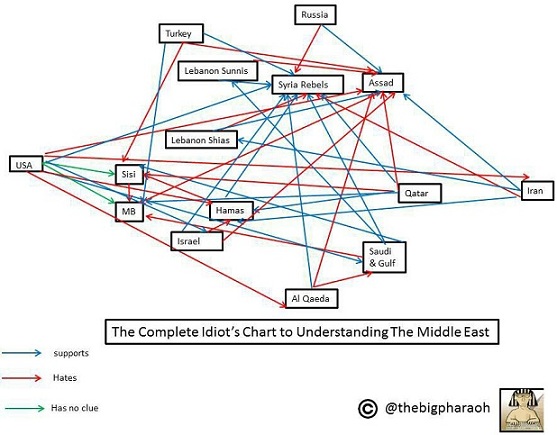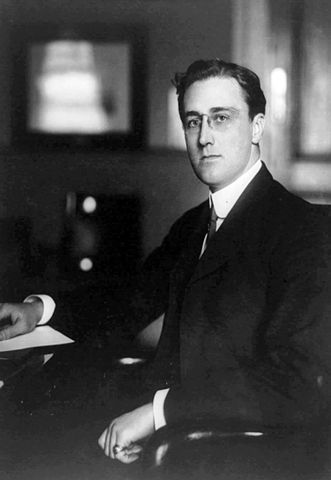Preview declaration
Sunday, July 5th, 2015[marked up by Lynn C. Rees]
The States General of the United Provinces of the Low Countries, to all whom it may concern, do by these Presents send greeting:
As it is apparent to all that a prince is constituted by God to be ruler of a people, to defend them from oppression and violence as the shepherd his sheep; and whereas God did not create the people slaves to their prince, to obey his commands, whether right or wrong, but rather the prince for the sake of the subjects (without which he could be no prince), to govern them according to equity, to love and support them as a father his children or a shepherd his flock, and even at the hazard of life to defend and preserve them. And when he does not behave thus, but, on the contrary, oppresses them, seeking opportunities to infringe their ancient customs and privileges, exacting from them slavish compliance, then he is no longer a prince, but a tyrant, and the subjects are to consider him in no other view. And particularly when this is done deliberately, unauthorized by the states, they may not only disallow his authority, but legally proceed to the choice of another prince for their defense. This is the only method left for subjects whose humble petitions and remonstrances could never soften their prince or dissuade him from his tyrannical proceedings; and this is what the law of nature dictates for the defense of liberty, which we ought to transmit to posterity, even at the hazard of our lives. And this we have seen done frequently in several countries upon the like occasion, whereof there are notorious instances, and more justifiable in our land, which has been always governed according to their ancient privileges, which are expressed in the oath taken by the prince at his admission to the government; for most of the Provinces receive their prince upon certain conditions, which he swears to maintain, which, if the prince violates, he is no longer sovereign.
Now thus it was that the king of Spain after the demise of the emperor, his father, Charles the Fifth, of the glorious memory (of whom he received all these provinces), forgetting the services done by the subjects of these countries, both to his father and himself, by whose valor he got so glorious and memorable victories over his enemies that his name and power became famous and dreaded over all the world, forgetting also the advice of his said imperial majesty, made to him before to the contrary, did rather hearken to the counsel of those Spaniards about him, who had conceived a secret hatred to this land and to its liberty, because they could not enjoy posts of honor and high employments here under the states as in Naples, Sicily, Milan and the Indies, and other countries under the king’s dominion. Thus allured by the riches of the said provinces, wherewith many of them were well acquainted, the said counselors, we say, or the principal of them, frequently remonstrated to the king that it was more for his Majesty’s reputation and grandeur to subdue the Low Countries a second time, and to make himself absolute (by which they mean to tyrannize at pleasure), than to govern according to the restrictions he had accepted, and at his admission sworn to observe. From that time forward the king of Spain, following these evil counselors, sought by all means possible to reduce this country (stripping them of their ancient privileges) to slavery, under the government of Spaniards having first, under the mask of religion, endeavored to settle new bishops in the largest and principal cities, endowing and incorporating them with the richest abbeys, assigning to each bishop nine canons to assist him as counselors, three whereof should superintend the inquisition.
By this incorporation the said bishops (who might be strangers as well as natives) would have had the first place and vote in the assembly of the states, and always the prince’s creatures at devotion; and by the addition of the said canons he would have introduced the Spanish inquisition, which has been always as dreadful and detested in these provinces as the worst of slavery, as is well known, in so much that his imperial majesty, having once before proposed it to these states, and upon whose remonstrances did desist, and entirely gave it up, hereby giving proof of the great affection he had for his subjects. But, notwithstanding the many remonstrances made to the king both by the provinces and particular towns, in writing as well as by some principal lords by word of mouth; and, namely, by the Baron of Montigny and Earl of Egmont, who with the approbation of the Duchess of Parma, then governess of the Low Countries, by the advice of the council of state were sent several times to Spain upon this affair. And, although the king had by fair words given them grounds to hope that their request should be complied with, yet by his letters he ordered the contrary, soon after expressly commanding, upon pain of his displeasure, to admit the new bishops immediately, and put them in possession of their bishoprics and incorporated abbeys, to hold the court of the inquisition in the places where it had been before, to obey and follow the decrees and ordinances of the Council of Trent, which in many articles are destructive of the privileges of the country.
This being come to the knowledge of the people gave just occasion to great uneasiness and clamor among them, and lessened that good affection they had always borne toward the king and his predecessors. And, especially, seeing that he did not only seek to tyrannize over their persons and estates, but also over their consciences, for which they believed themselves accountable to God only. Upon this occasion the chief of the nobility in compassion to the poor people, in the year 1566, exhibited a certain remonstrance in form of a petition, humbly praying, in order to appease them and prevent public disturbances, that it would please his majesty (by showing that clemency due from a good prince to his people) to soften the said points, and especially with regard to the rigorous inquisition, and capital punishments for matters of religion. And to inform the king of this affair in a more solemn manner, and to represent to him how necessary it was for the peace and prosperity of the public to remove the aforesaid innovations, and moderate the severity of his declarations published concerning divine worship, the Marquis de Berghen, and the aforesaid Baron of Montigny had been sent, at the request of the said lady regent, council of state, and of the states-general as ambassadors to Spain, where the king, instead of giving them audience, and redress the grievances they had complained of (which for want of a timely remedy did always appear in their evil consequences among the common people), did, by the advice of Spanish council, declare all those who were concerned in preparing the said remonstrance to be rebels, and guilty of high treason, and to be punished with death, and confiscation of their estates; and, what is more (thinking himself well assured of reducing these countries under absolute tyranny by the army of the Duke of Alva), did soon after imprison and put to death the said lords the ambassadors, and confiscated their estates, contrary to the law of nations, which has been always religiously observed even among the most tyrannic and barbarous princes.
And, although the said disturbances, which in the year 1566 happened on the aforementioned occasion, were now appeased by the governess and her ministers, and many friends to liberty were either banished or subdued, in so much that the king had not any show of reason to use arms and violence, and further oppress this country, yet for these causes and reasons, long time before sought by the council of Spain (as appears by intercepted letters from the Spanish ambassador, Alana, then in France, writ to the Duchess of Parma), to annul all the privileges of this country, and govern it tyrannically at pleasure as in the Indies; and in their new conquests he has, at the instigation of the council of Spain, showing the little regard he had for his people, so contrary to the duty which a good prince owes to his subjects), sent the Duke of Alva with a powerful army to oppress this land, who for his inhuman cruelties is looked upon as one of its greatest enemies, accompanied with counselors too like himself. And, although he came in without the least opposition, and was received by the poor subjects with all marks of honor and clemency, which the king had often hypocritically promised in his letters, and that himself intended to come in person to give orders to their general satisfaction, having since the departure of the Duke of Alva equipped a fleet to carry him from Spain, and another in Zealand to come to meet him at the great expense of the country, the better to deceive his subjects, and allure them into the toils, nevertheless the said duke, immediately after his arrival (though a stranger, and no way related to the royal family), declared that he had a captain-general’s commission, and soon after that of governor of these provinces, contrary to all its ancient customs and privileges; and, the more to manifest his designs, he immediately garrisoned the principal towns and castles, and caused fortresses and citadels to be built in the great cities to awe them into subjection, and very courteously sent for the chief nobility in the king’s name, under pretense of taking their advice, and to employ them in the service of their country. And those who believed his letters were seized and carried out of Brabant, contrary to law, where they were imprisoned and prosecuted as criminals before him who had no right, nor could be a competent judge; and at last he, without hearing their defense at large, sentenced them to death, which was publicly and ignominiously executed.
The others, better acquainted with Spanish hypocrisy, residing in foreign countries, were declared outlawed, and had their estates confiscated, so that the poor subjects could make no use of their fortresses nor be assisted by their princes in defense of their liberty against the violence of the pope; besides a great number of other gentlemen and substantial citizens, some of whom were executed, and others banished that their estates might be confiscated, plaguing the other honest inhabitants, not only by the injuries done to their wives, children and estates by the Spanish soldiers lodged in their houses, as likewise by diverse contributions, which they were forced to pay toward building citadels and new fortifications of towns even to their own ruin, besides the taxes of the hundredth, twentieth, and tenth penny, to pay both the foreign and those raised in the country, to be employed against their fellow-citizens and against those who at the hazard of their lives defended their liberties. In order to impoverish the subjects, and to incapacitate them to hinder his design, and that he might with more ease execute the instructions received in Spain, to treat these countries as new conquests, he began to alter the course of justice after the Spanish mode, directly contrary to our privileges; and, imagining at last he had nothing more to fear, he endeavored by main force to settle a tax called the tenth penny on merchandise and manufacture, to the total ruin of these countries, the prosperity of which depends upon a flourishing trade, notwithstanding frequent remonstrances, not by a single province only, but by all of them united, which he had effected, had it not been for the Prince of Orange with diverse gentlemen and other inhabitants, who had followed this prince in his exile, most of whom were in his pay, and banished by the Duke of Alva with others who between him and the states of all the provinces, on the contrary sought, by all possible promises made to the colonels already at his devotion, to gain the German troops, who were then garrisoned in the principal fortresses and the cities, that by their assistance he might master them, as he had gained many of them already, and held them attached to his interest in order, by their assistance, to force those who would not join with him in making war against the Prince of Orange, and the provinces of Holland and Zealand, more cruel and bloody than any war before. But, as no disguises can long conceal our intentions, this project was discovered before it could be executed; and he, unable to perform his promises, and instead of that peace so much boasted of at his arrival a new war kindled, not yet extinguished.
All these considerations give us more than sufficient reason to renounce the King of Spain, and seek some other powerful and more gracious prince to take us under his protection; and, more especially, as these countries have been for these twenty years abandoned to disturbance and oppression by their king, during which time the inhabitants were not treated as subjects, but enemies, enslaved forcibly by their own governors.
Having also, after the decease of Don Juan, sufficiently declared by the Baron de Selles that he would not allow the pacification of Ghent , the which Don Juan had in his majesty’s name sworn to maintain, but daily proposing new terms of agreement less advantageous. Notwithstanding these discouragements we used all possible means, by petitions in writing, and the good offices of the greatest princes in Christendom, to be reconciled to our king, having lastly maintained for a long time our deputies at the Congress of Cologne, hoping that the intercession of his imperial majesty and of the electors would procure an honorable and lasting peace, and some degree of liberty, particularly relating to religion (which chiefly concerns God and our own consciences), at last we found by experience that nothing would be obtained of the king by prayers and treaties, which latter he made use of to divide and weaken the provinces, that he might the easier execute his plan rigorously, by subduing them one by one, which afterwards plainly appeared by certain proclamations and proscriptions published by the king’s orders, by virtue of which we and all officers of the United Provinces with all our friends are declared rebels and as such to have forfeited our lives and estates. Thus, by rendering us odious to all, he might interrupt our commerce, likewise reducing us to despair, offering a great sum to any that would assassinate the Prince of Orange.
So, having no hope of reconciliation, and finding no other remedy, we have, agreeable to the law of nature in our own defense, and for maintaining the rights, privileges, and liberties of our countrymen, wives, and children, and latest posterity from being enslaved by the Spaniards, been constrained to renounce allegiance to the King of Spain, and pursue such methods as appear to us most likely to secure our ancient liberties and privileges. Know all men by these presents that being reduced to the last extremity, as above mentioned, we have unanimously and deliberately declared, and do by these presents declare, that the King of Spain has forfeited, ipso jure, all hereditary right to the sovereignty of those countries, and are determined from henceforward not to acknowledge his sovereignty or jurisdiction, nor any act of his relating to the domains of the Low Countries, nor make use of his name as prince, nor suffer others to do it. In consequence whereof we also declare all officers, judges, lords, gentlemen, vassals, and all other the inhabitants of this country of what condition or quality soever, to be henceforth discharged from all oaths and obligations whatsoever made to the King of Spain as sovereign of those countries. And whereas, upon the motives already mentioned, the greater part of the United Provinces have, by common consent of their members, submitted to the government and sovereignty of the illustrious Prince and Duke of Anjou, upon certain conditions stipulated with his highness, and whereas the most serene Archduke Matthias has resigned the government of these countries with our approbation, we command and order all justiciaries, officers, and all whom it may concern, not to make use of the name, titles, great or privy seal of the King of Spain from henceforward; but in lieu of them, as long as his highness the Duke of Anjou is absent upon urgent affairs relating to the welfare of these countries, having so agreed with his highness or otherwise, they shall provisionally use the name and title of the President and Council of the Province.
And, until such a president and counselors shall be nominated, assembled, and act in that capacity, they shall act in our name, except that in Holland and Zealand where they shall use the name of the Prince of Orange, and of the states of the said provinces until the aforesaid council shall legally sit, and then shall conform to the directions of that council agreeable to the contract made with his highness. And, instead of the king’s seal aforesaid, they shall make use of our great seal, center-seal, and signet, in affairs relating to the public, according as the said council shall from time to time be authorized. And in affairs concerning the administration of justice, and transactions peculiar to each province, the provincial council and other councils of that country shall use respectively the name, title, and seal of the said province, where the case is to be tried, and no other, on pain of having all letters, documents, and dispatches annulled. And, for the better and effectual performance hereof, we have ordered and commanded, and do hereby order and command, that all the seals of the King of Spain which are in these United Provinces shall immediately, upon the publication of these presents, be delivered to the estate of each province respectively, or to such persons as by the said estates shall be authorized and appointed, upon peril of discretionary punishment.
Moreover, we order and command that from henceforth no money coined shall be stamped with the name, title, or arms of the King of Spain in any of these United Provinces, but that all new gold and silver pieces, with their halfs and quarters, shall only bear such impressions as the states shall direct. We order likewise and command the president and other lords of the privy council, and all other chancellors, presidents, accountants-general, and to others in all the chambers of accounts respectively in these said countries, and likewise to all other judges and officers, as we hold them discharged from henceforth of their oath made to the King of Spain, pursuant to the tenor of their commission, that they shall take a new oath to the states of that country on whose jurisdiction they depend, or to commissaries appointed by them, to be true to us against the King of Spain and all his adherents, according to the formula of words prepared by the states-general for that purpose. And we shall give to the said counselors, justiciaries, and officers employed in these provinces, who have contracted in our name with his highness the Duke of Anjou, an act to continue them in their respective offices, instead of new commissions, a clause annulling the former provisionally until the arrival of his highness. Moreover, to all such counselors, accomptants, justiciaries, and officers in these Provinces, who have not contracted with his highness, aforesaid, we shall grant new commissions under our hands and seals, unless any of the said officers are accused and convicted of having acted under their former commissions against the liberties and privileges of this country or of other the like maladministration.
We farther command of the president and members of the privy council, chancellor of the Duchy of Brabant, also the chancellor of the Duchy of Guelders, and county of Zutphen, to the president and members of the council of Holland, to the receivers of great officers of Beoostersheldt and Bewestersheldt in Zealand, to the president and council of Friese, and to the Escoulet of Mechelen, to the president and members of the council of Utrecht, and to all other justiciaries and officers whom it may concern, to the lieutenants all and every of them, to cause this our ordinance to be published and proclaimed throughout their respective jurisdictions, in the usual places appointed for that purpose, that none may plead ignorance. And to cause our said ordinance to be observed inviolably, punishing the offenders impartially and without delay; for so it is found expedient for the public good. And, for better maintaining all and every article hereof, we give to all and every one of you, by express command, full power and authority.
In witness whereof we have hereunto set our hands and seals, dated in our assembly at the Hague, the six and twentieth day of July, 1581, endorsed by the orders of the states-general, and signed J. De Asseliers.
[source]









